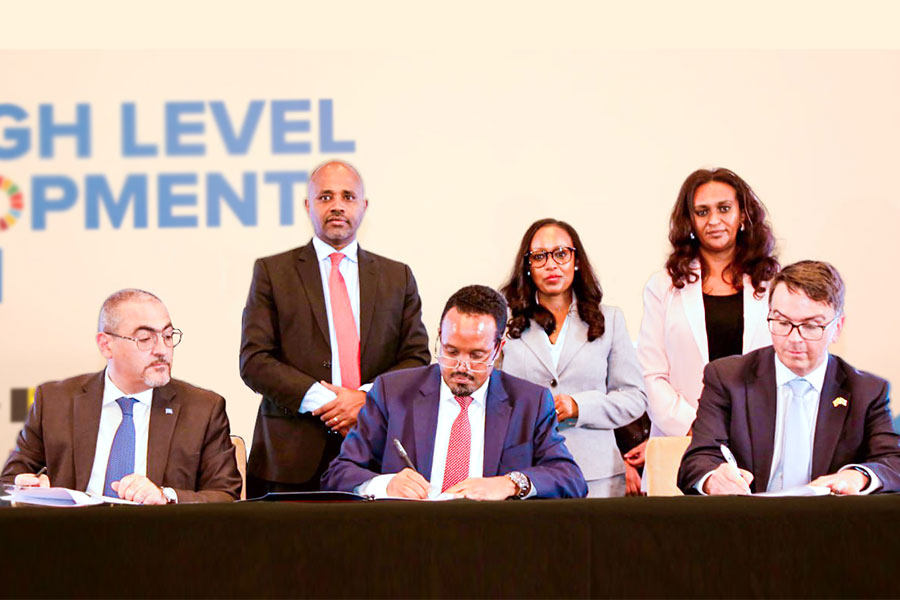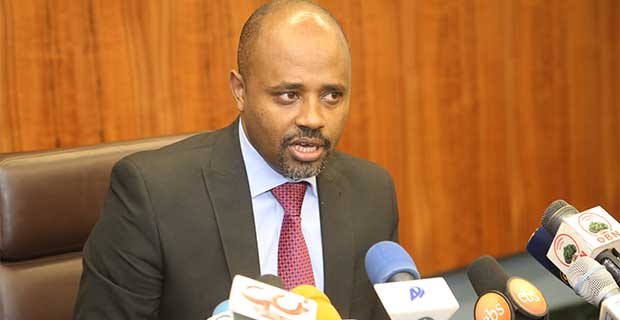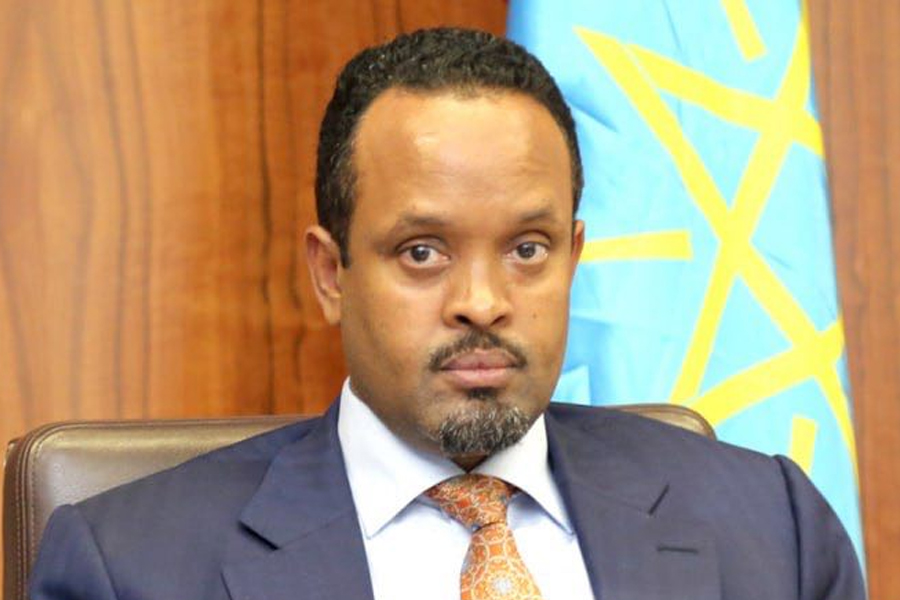
Fortune News | Mar 06,2021
In step, Chief Justice Meaza Ashenafi (far right) marches from the podium with new board members of the Ethiopian Broadcasting Corporation after swearing them in last Thursday, December 24, 2020. Opposition leaders Yeshewase Asefa (centre right) and Aregawi Berhe (PhD) (far left); and Alemu Seme (PhD), a senior offical of Prosperity Party, took their oath after MPs approved the nominations made by Prime Minister Abiy Ahmed (PhD).As new additions to the eight-person board, their appointment was approved without much contention. The only inquiry fielded was to the continued board membership of Kamia Junedi, whose role as a legislator was called into question as a possible conflict of interest. Tagesse Chafo, the speaker of parliament, responded that the session hardly concerns her given that she has been on the board since 2018.
There have long been calls to make state media institutions independent of political interference, which influenced the appointment of opposition figures such as Merara Gudina (Prof.). The general media landscape has further been criticised for toeing the state line through the political control of public media outlets, as well as the quashing of institutions deemed to be critical. Over 240 websites and news channels used to be blocked before restrictions were lifted in 2018. The country was also among the worst jailers of journalists, according to the Committee to Protect Journalists (CPJ), until none were reported to be behind bars in 2018.
Reforms in that year also brought the start of long sought amendment processes to the media law, which earlier this month passed the Council of Ministers. It would give legal identity to internet-based media outlets and prohibits remanding a person who is accused of violating the media law for further investigation.
Still, the current administration has been accused of falling into old habits in transparency and media independence. Several internet outages have occurred, including one that covered the entire country last July, while a hate speech law was legislated. There have been seven journalists behind bars in 2020, according to the CPJ.
PUBLISHED ON
Dec 26,2020 [ VOL
21 , NO
1078]

Fortune News | Mar 06,2021

Fortune News | Mar 16,2024

Commentaries | Sep 14,2019

Fortune News | Feb 08,2020

Fortune News | Aug 05,2023

Viewpoints | May 25,2024

Featured | Sep 08,2024

Commentaries | Jul 01,2023

Fortune News | Jul 30,2022

Fortune News | Sep 14,2024

Dec 22 , 2024 . By TIZITA SHEWAFERAW
Charged with transforming colossal state-owned enterprises into modern and competitiv...

Aug 18 , 2024 . By AKSAH ITALO
Although predictable Yonas Zerihun's job in the ride-hailing service is not immune to...

Jul 28 , 2024 . By TIZITA SHEWAFERAW
Unhabitual, perhaps too many, Samuel Gebreyohannes, 38, used to occasionally enjoy a couple of beers at breakfast. However, he recently swit...

Jul 13 , 2024 . By AKSAH ITALO
Investors who rely on tractors, trucks, and field vehicles for commuting, transporting commodities, and f...

Oct 25 , 2025
The regulatory machinery is on overdrive. In only two years, no fewer than 35 new pro...

Oct 18 , 2025
The political establishment, notably the ruling party and its top brass, has become p...

Oct 11 , 2025
Ladislas Farago, a roving Associated Press (AP) correspondent, arrived in Ethiopia in...

Oct 4 , 2025
Eyob Tekalegn (PhD) had been in the Governor's chair for only weeks when, on Septembe...